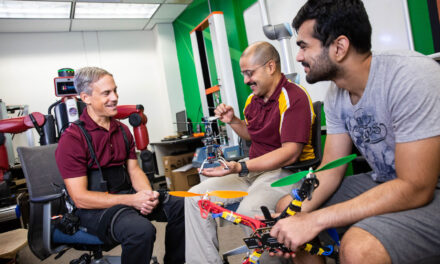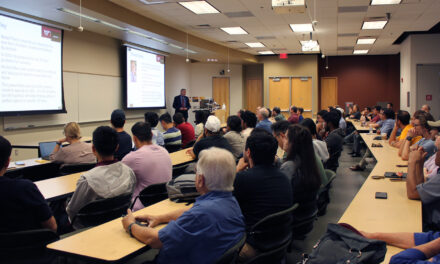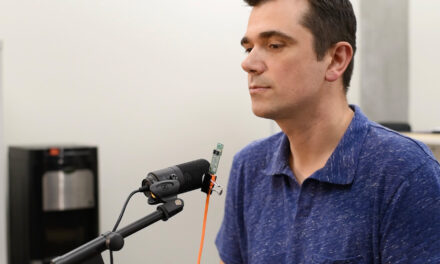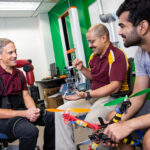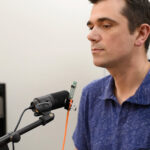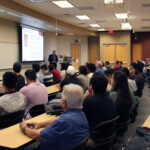
Valley aviation community brings Afghan refugees to ASU
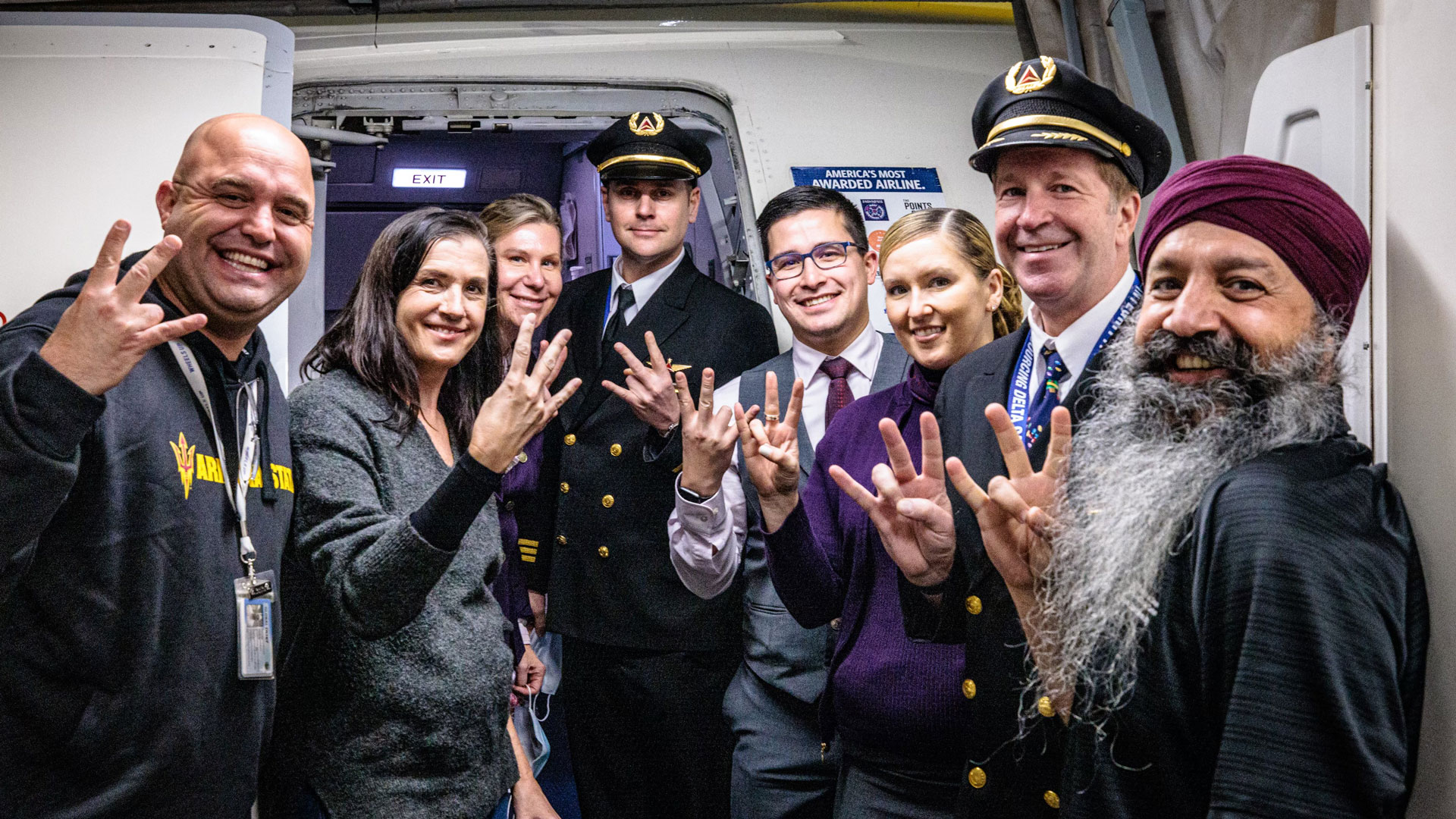
Above: After the Afghan women deplaned, it was all smiles from ASU, Wheels Up and Delta Air Lines representatives at Sky Harbor International Airport. Photo courtesy of Charlie Light
In a matter of days, a massive Arizona State University effort involving the local aviation community — including Wheels Up, Honeywell and Delta Air Lines — collaborated to bring 61 Afghan refugees to ASU, where they will restart their education as Sun Devils.
ASU is an official co-sponsor with the International Rescue Committee for the resettlement of the Afghan students in Arizona and will provide academic support and housing for the students as they complete their degrees.
The group of young women were attending the Asian University for Women in Bangladesh when it closed due to COVID-19. They moved back to Kabul, Afghanistan, amid chaos after the Taliban had taken over the country. Following several failed attempts, the women were successfully transported to Kabul’s Hamid Karzai International Airport to be flown stateside aboard U.S. military aircraft.
A 22-year-old refugee told the South China Morning Post, “We would either die trying or make it out of Afghanistan alive.”
It was the generosity of partners and donors fueled by ASU President Michael Crow’s commitment to education for all that propelled this initiative forward.
Flight to freedom
After journeying to the U.S., the group spent months at a military base in Wisconsin, alongside 13,000 other Afghan refugees, waiting for transport arrangements.
The group’s travel to Tempe, Arizona, from the military base was delayed again and again, creating frustration and depression among the students who had already been traumatized by their sudden departure from Afghanistan. So, ASU determined that it was important to bring them to Tempe as soon as possible — and together.
Pam DeLargy, executive director of Education for Humanity at ASU, led the initiative to arrange transport by leveraging the bandwidth of local organizations to finally bring the women to their new home. She solicited the help of ASU alumnus Justin Firestone, co-founder of Wheels Up, a private jet charter company with ties to the Valley, who immediately jumped on board. Firestone is actively involved in promoting ASU’s mission as a donor for both ASU’s athletic programs and the aviation program in the Ira. A. Fulton Schools of Engineering at ASU.
Firestone secured two flights for the effort. A Honeywell corporate jet carried an advance team of representatives from ASU, Wheels Up and Honeywell as well as state and federal agencies from Arizona to Wisconsin to ensure a smooth transition. The following day, Delta Air Lines chartered a flight funded by an Intel Corporation of America grant to bring the group of women to Arizona.
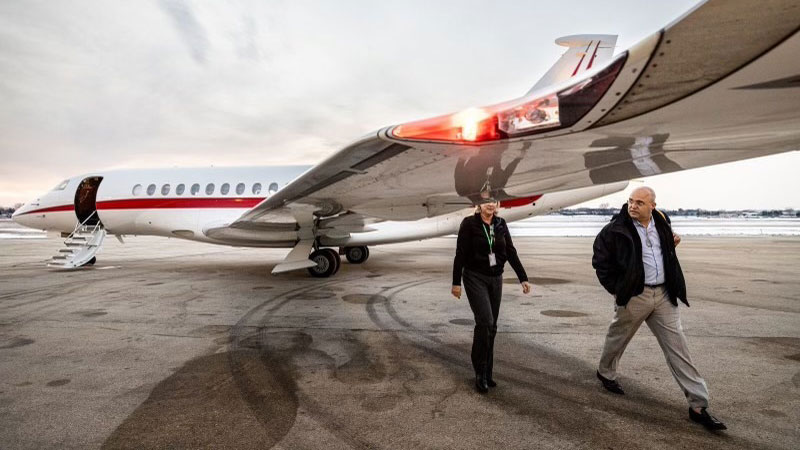
Pam Mannon (left) a Honeywell pilot and Justin Firestone (right) deplane an aircraft at La Crosse Regional Airport in La Crosse, Wisconsin. Photo courtesy of Charlie Light
“I’m humbled and honored to have played a small role in this cause,” Firestone says. “It was one of the most powerful experiences I’ve ever been associated with, personally or professionally.”
Executives from Wheels Up, Delta Air Lines and Honeywell worked around the clock with each other and university executives to ensure the group’s arrival in Tempe. Just seven days after Firestone was made aware of this effort, the women touched down at Phoenix Sky Harbor International Airport, greeted and cheered on by students and staff from Global Launch at ASU.
“For Honeywell to be a part of this mission and help these young women start a new life in the U.S. is truly a remarkable privilege,” says Mike Madsen, the president and CEO of Phoenix-based Honeywell Aerospace and an ASU alumnus. “Their bravery and perseverance are extraordinarily inspiring. We were glad to do whatever we could to make their transition to Arizona as smooth as possible. It’s what they deserve, certainly after all they’ve been through.”
Roger Edgar, the vice president of development for the ASU Foundation, says he feels deep gratitude for how willingly and generously the local aviation community rallied to bring these refugees to ASU, especially during the busy holiday season.
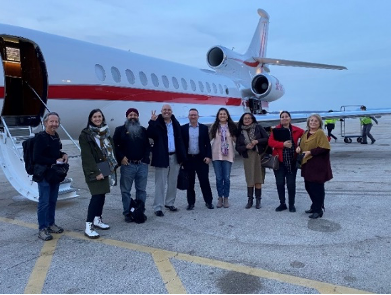
A Honeywell corporate jet carried an advance team from Arizona to Wisconsin to ensure a smooth transition. Photo courtesy of Mike Madsen
“ASU was struggling to bring these women to Tempe, and without an ounce of hesitation, our local aviation community leaned in to help,” Edgar says. “It is unprecedented that the local aviation community was able to mobilize so quickly and offer their time, money and resources in a matter of 48 hours. This is an extraordinary example of kindness and compassion.”
Resettling in the Valley
As the newest Sun Devils settle in, various individuals and companies are offering their support. Whether it’s Global Launch helping them get acquainted with their new life, Intel donating laptops, the Mayo Family Foundation providing phones or Aramark stocking up the dining hall over break, the list goes on.
“Their journey is just beginning,” Edgar says. “And we will be there for them every step of the way.”
Firestone plans to continue supporting this cause in any way he can, and he is still reflecting on an unforgettable experience.
“The women asked what would happen when we landed, and I told them they could rest or take a walk over to CVS or Taco Bell. They couldn’t wrap their heads around the concept of walking around freely. They were so used to being confined at the base. So, now that they’re in Tempe, they really get to see what freedom looks like,” Firestone says. “When you’re part of someone’s first day of freedom, it’s an unimaginable feeling. It’s mind-blowing that we were able to make this big of an impact.”
How to help
For those interested in supporting the women at the center of this story or other Afghan refugees coming to ASU, please visit asufoundation.org/afghanistan.
















